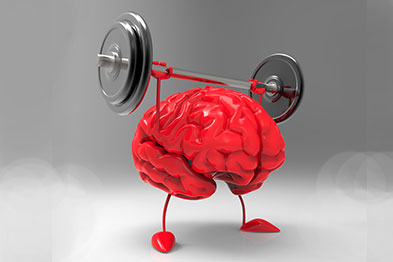Use It Or Lose It

The old adage, “If you don’t use it, you lose it,” has taken on a whole new meaning and we are not just talking about muscles tone. You can’t ignore the evidence. Study after study has shown how exercise – even moderate exercise – can have a marked improvement in your overall health – including your brain. As our population ages, and with the rise in cases of dementia and Alzheimer’s disease, more and more researchers are studying the effects of exercise on the brain. Now new research reveals just how much of an impact exercise can have on brain health as we age. In a study published in Neurology, the medical journal of the American Academy of Neurology, they found that older adults who reported either light or no exercise at all experienced a cognitive decline equal to 10 more years of aging when compared to people who were moderate to intense exercisers. Yes, you read that right – 10 YEARS!
“The number of people over the age of 65 in the United States is on the rise, meaning the public health burden of thinking and memory problems will likely grow,” study author Dr. Clinton B. Wright, of the University of Miami, said in a statement. “Our study showed that for older people, getting regular exercise may be protective, helping them keep their cognitive abilities longer.”
In a questionnaire, 900 participants, whose average age was 71, were asked how long and how often they had engaged in physical activity during the previous two weeks. An average of seven years later, each subject took tests evaluating memory and thinking skills and got a brain MRI. Five years after that, the participants took the memory and thinking tests again. In all, 90 percent of the group reported light exercise, such as walking and yoga, or no exercise at all. The remaining 10 percent were categorized as high intensity exercisers and reported participating in activities like running, aerobics, and calisthenics.
After reviewing the data, the researchers found that of the people who had no signs of memory and thinking problems after the first set of cognitive test had high levels of activity, while those who reported low activity levels showed a greater decline over five years. “We found that people who exercise moderately or heavily had a reduced risk of memory loss and what we call executive function, equivalent to about 10 years,” study co-author Dr. Mitchell Elkind, professor of neurology and epidemiology at New York Presbyterian/Columbia University, told CBS News.
Even after factoring in life style choices that could affect brain health, including smoking, alcohol use, high blood pressure and body mass index, this difference remained!
In another study, published in the journal Medicine & Science in Sports & Exercise, researchers outfitted 6,400 people older than 65 years old with an activity tracker for a week. They also assessed people’s cognitive abilities through a series of tasks. Three years later, the people who did moderate-to-vigorous levels of physical activity were significantly less likely to experience cognitive problems than those who were sedentary or did light physical activity. This new study adds to the mounting scientific evidence that physical activity is linked to better brain health.
So what do you need to do to try to achieve these results? Researchers say seniors should try to move around as much as they can. Calisthenics several times a week, playing handball or tennis, even moderate amounts of activity can be a benefit.
“Physical activity is an attractive option to reduce the burden of cognitive impairment in public health because it is low cost and doesn’t interfere with medications,” said lead study author, Dr. Clinton B. Wright, of the University of Miami. “Our results suggest that moderate to intense exercise may help older people delay aging of the brain.”





